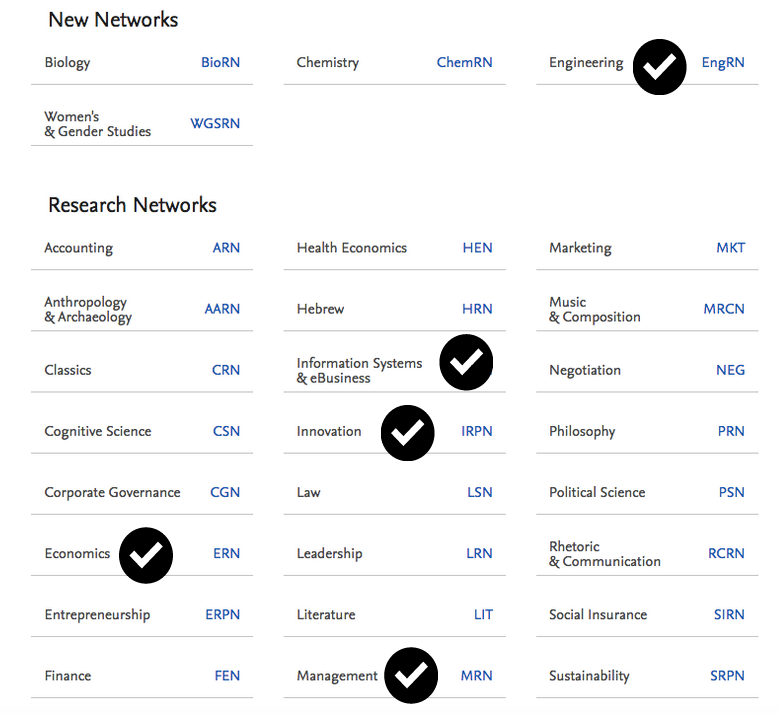NGI FORWARD
archive 2019
 Developing a cutting-edge data-driven methodology for identifying early signals of new trends & technologies. |
 Mapping the ecosystems & networks surrounding these key topics, evaluating their social, legal, technological, ethical & economic contexts. |
 Creating a value-driven vision for what the future internet could and should look like, involving a wide variety of voices across Europe. |
Methodology
Unique terms: 0+
Media articles: 0
Scientific articles: 0
Analysis period: three years and four months
Why ArXiv and SSRN?
-
Lengthy publication process in scientific journals
-
Broad coverage: SSRN's e-Library provides over 800,000 research papers from 400,000 researchers across 30 disciplines, ArXiv provides open access to almost 1,500,000 e-prints mostly in STEM fields
Project Goal and General Idea
- Major aim is to identify key technologies determining the development of Internet until 2025
- Strong focus on the relationship between technological areas and social issues
- Data-driven approach with heterogeneous sources of data
Trend analysis
- Analysis based on the frequency of appearances for all unigrams and bigrams in the texts
- Average monthly change in the analysed term's frequency is calculated by OLS regressions
- The coefficient reveals the trending unigrams and bigrams
Co-occurrence analysis
- Exploring the relationship between topics
- Pairs of terms which are mentioned together in media articles
- The number of articles containing both terms is divided by the number of articles including our previously identified keyword of interest for every media website
Issue mapping
- Articles are categorised across two dimensions: geography (EU vs US) and covered topic (social vs technological)
- Words are ranked based on their frequency in articles classified as social and non-social (technological)
Main Programming Tools
Topic identification
most trending NGI related keywords are identified
Grouped into wider areas
The size of the bubble is based on the regression coefficient
Bigger bubble: more robust trend
Co-occurrences
The goal is to dive deeper in
emerging technologies'
Relationship between social issues and
technology
Hover on co-occurrence tree to prevent it from scrolling automatically
Umbrella topics
Hover on a topic to show keywords and a short description
 AI & machine
AI & machinelearning
 Internet of Things
Internet of Things Blockchain &
Blockchain &crypto
 Quantum
Quantumcomputing

AI & Machine-learning
Artificial Intelligence and machine learning algorithms are among the most important computer science fields, with huge social implications. The top trending terms include both specific algorithms (e.g. reinforcement learning), tools (e.g. PyTorch) and also various controversial implementations, as deep fakes or Google’s project Maven. Moreover, AI and ML may be crucial in solving many social challenges, as in the case of the content crisis on social media.

Internet of Things
Internet of Things, along with various related technologies (AR/VR), has large potential to transform consumer electronics and production systems as well (industrial IoT). On the other hand, IoT devices raise cybersecurity and privacy concerns (e.g. smart speakers).

Blockchain & cryptocurrencies
Blockchain has been long regarded as a transformative technology with large disruptive potential. Blockchain technologies may play a central role in the future of social media, financial services and in other intermediation services. As of today, the most widespread implementation of blockchain is related to cryptocurrencies. As an emerging technology, blockchain raises pressing regulatory issues.

Quantum computing
Quantum computing, although there are promising developments, is not likely to become a mature technology in the next few years. However, quantum computing provides an opportunity for Europe to regain its competitive edge in advanced technologies. Therefore, mapping of quantum technology areas and developments has large value added.

Ethical AI & ML
As discussions about the potential transformative impact of AI and Machine Learning have come to dominate public debate in recent years, so have concerns about the potential negative side-effects of allowing these kinds of technologies to play an ever-larger role in decision-making and the governing of our societies. The development of ethical AI and ML tools doesn’t only involve the use of responsibly managed data (make sure we have a representative sample, privacy and anonymity is ensured) and algorithms that don’t further existing societal biases (around gender and ethnicity, for example), but also that the tools themselves are used for purposes we consider ethically just. Ensuring we have solutions that are fair and inclusive along the value chain (from data generation to the impact of the decisions being made or tasks replaced).

Internet regulation
Europe has been at the forefront of online regulations with GDPR, while the copyright directive (especially Article 11 and 13) has been more polarising among stakeholders. In the US, recent discussion has been focused on online content and Section 230 (platforms are not liable for the user generated content) or the controversial repeal of net neutrality rules.

Social media & content crisis
The spread of fake news, misinformation and the decline of trust in reliable sources create a profound challenge for the functioning of democracies and societies. While regulating platforms or implementing advanced topic filtering algorithms are among possible solutions, bringing back trust to written words may be far more complicated.

Market competition
The giants of digital economy (GAFA: Google, Amazon, Facebook and Apple) are all functioning as platforms with incredible market power. While the US has been less active in regulating market competition, e.g. in the case of Facebook acquisition of rival Instagram and Whatsapp, the EU is leading the discussion on ensuring competition in the Digital Single Market.

Chinese tech sector
China has managed to build a vibrant ecosystem in such key technologies as AI or 5G. The increasing position of the Chinese tech sector has brought a momentous challenge for both Europe and the US. China may be the forerunner in developing advanced AI systems and 5G networks, while advocating an approach to citizen rights and privacy that is in stark contrast to European values.
 Internet
Internetregulation
 Social media &
Social media &content crisis
 Market
Marketcompetition
 Chinese
Chinesetech
Issue mapping
Articles are classified in two dimensions: EU/US, social issue/technology
EU axis: articles from European sources or concerning Europe, residualized on the social issues axis
Social issues axis: articles containing a sufficient number of words weighted by their inverse frequency from a pre-defined list of social topics based on Latent Dirichlet Allocation
Mapping trending words with article type based on number of occurrences
Top right corner: EU articles on social issues
Bottom left corner: US articles on technology
Sentiments
The sentiment analysis resulted in a compound score for every paragraph containing a given phrase. The score is calculated from the mean of the valence scores of each word in the paragraph apart from the analysed words themselves, which have been removed from the paragraph's text

project maven
| Most positive | Most negative |
|---|---|
| ethical principles | military drones |
| neural networks | killer robots |
| recognition software | sexual harassment |
| government contracts | autonomous weapons |
| defense innovation | lethal autonomous |
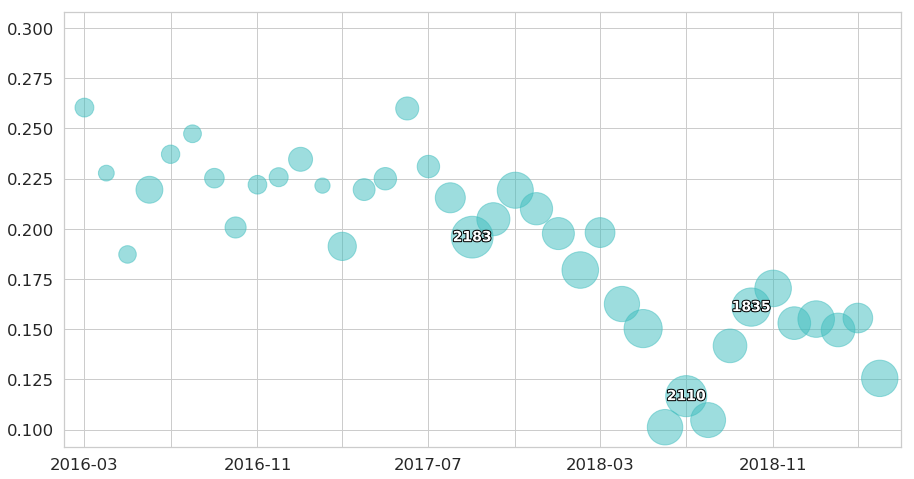
facial recognition
| Most positive | Most negative |
|---|---|
| voice assistant | border guards |
| ai technology | autonomous weapons |
| ai research | project maven |
| edge computing | big brother |
| ai startup | racial bias |
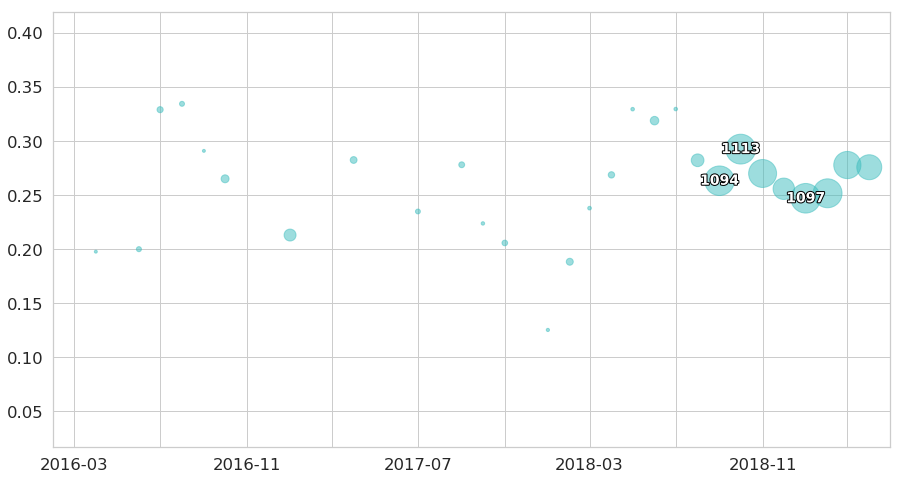
iot tech
| Most positive | Most negative |
|---|---|
| industrial iot | security concerns |
| emerging technologies | security threats |
| edge computing | cyber security |
| cloud vendors | 5g networks |
| enterprise technology | network equipment |
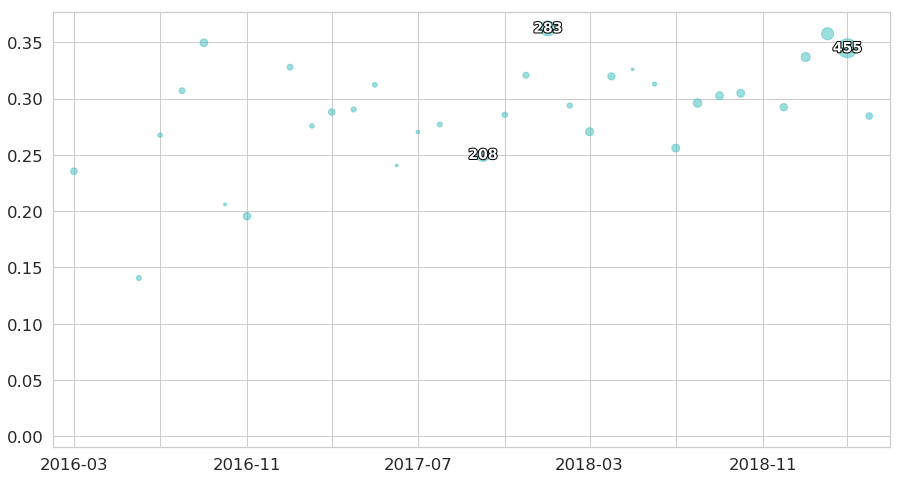
iiot
| Most positive | Most negative |
|---|---|
| digital twin | cyber security |
| machine-learning model | security risks |
| edge devices | subscription price |
| industrial automation | random access |
| smart speaker | reduce latency |

blockchain
| Most positive | Most negative |
|---|---|
| renewable energy | child abuse |
| enterprise technology | alex jones |
| edge computing | cryptocurrency wallet |
| startup battlefield | conspiracy theories |
| decentralized apps | ponzi scheme |
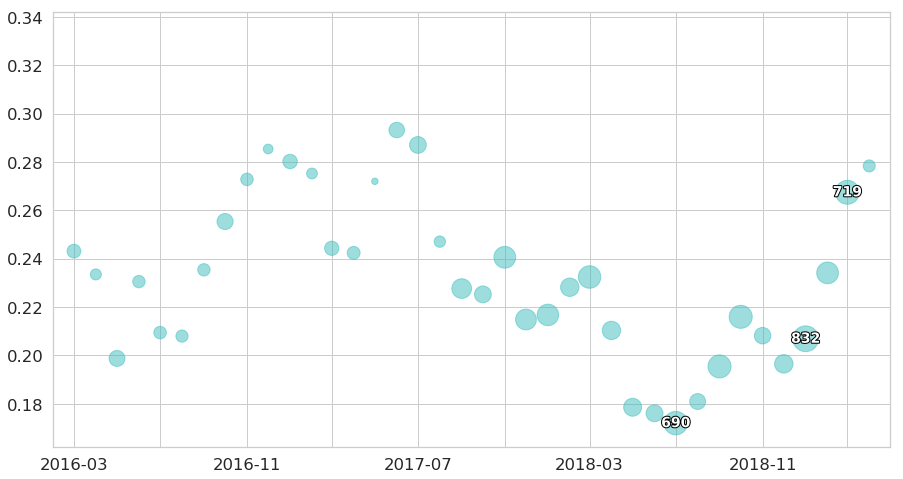
quantum computing
| Most positive | Most negative |
|---|---|
| reinforcement learning | logic qubit |
| chinese researchers | five eyes |
| first demonstration | global trade |
| information sciences | trump administration |
| nobel prize | quantum supremacy |
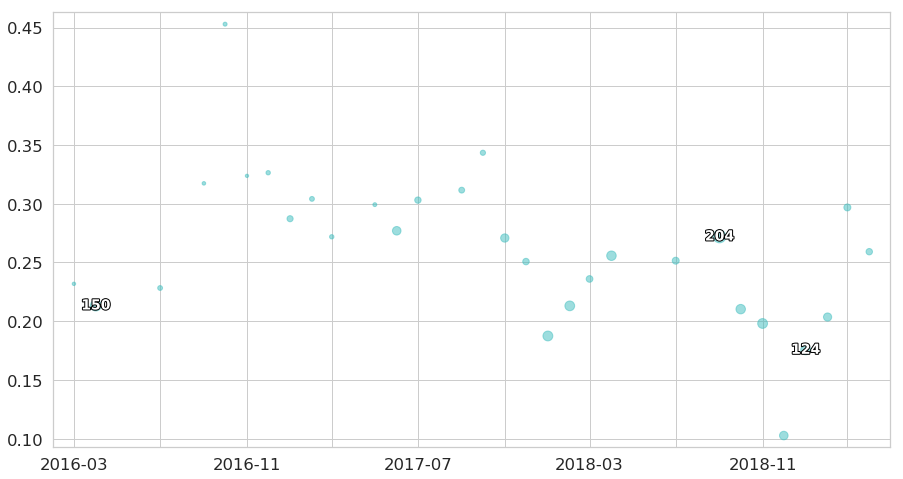
quantum technology
| Most positive | Most negative |
|---|---|
| 50 qubits | facebook users |
| quantum network | cambridge analytica |
| european ai | le maire |
| ai research | data breach |
| information sciences | sk telecom |
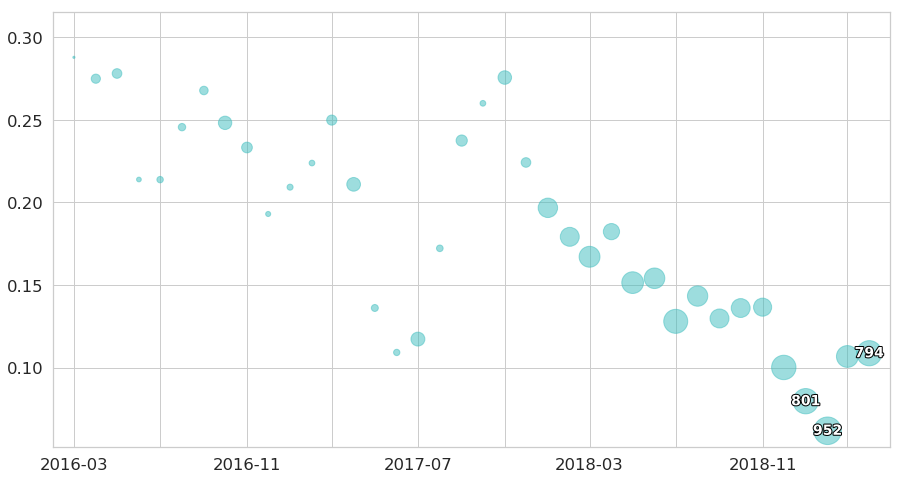
chinese tech
| Most positive | Most negative |
|---|---|
| ai platform | uncle sam |
| ai technology | meng wanzhou |
| ai applications | founder ren |
| ai algorithms | huawei employees |
| neural networks | huawei products |
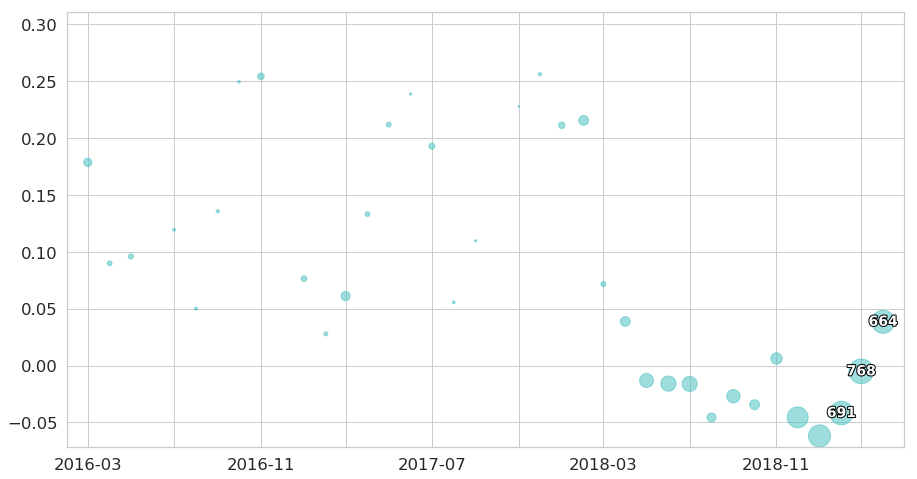
chinese telecom
| Most positive | Most negative |
|---|---|
| oversight board | huawei cfo |
| user data | sanction law |
| huawei cyber | us sanctions |
| security evaluation | export ban |
| 5g security | trade talks |
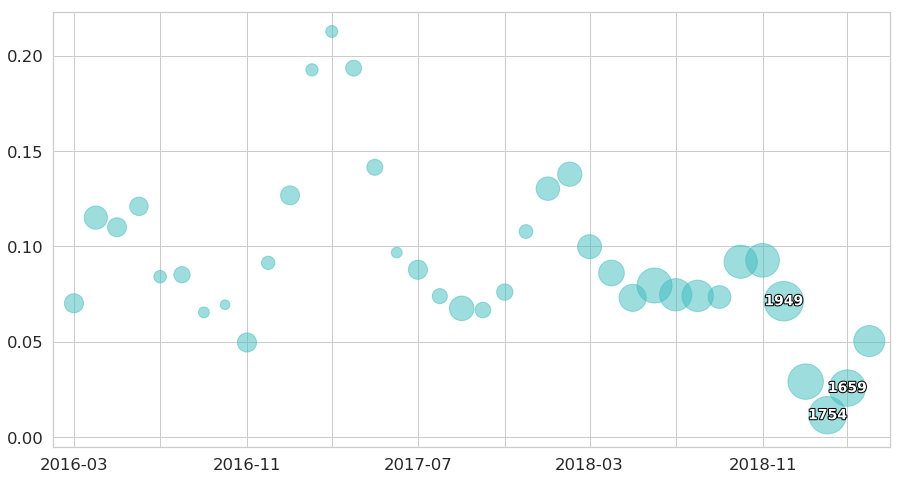
chinese government
| Most positive | Most negative |
|---|---|
| former intelligence | us sanctions |
| quantum computing | against iran |
| neural networks | sanctions against |
| facial recognition | huawei employees |
| china mobile | stealing trade |

huawei equipment
| Most positive | Most negative |
|---|---|
| deploy 5g | stealing trade |
| security council | criminal charges |
| oversight board | guo ping |
| chinese equipment | meng wanzhou |
| five eyes | against huawei |
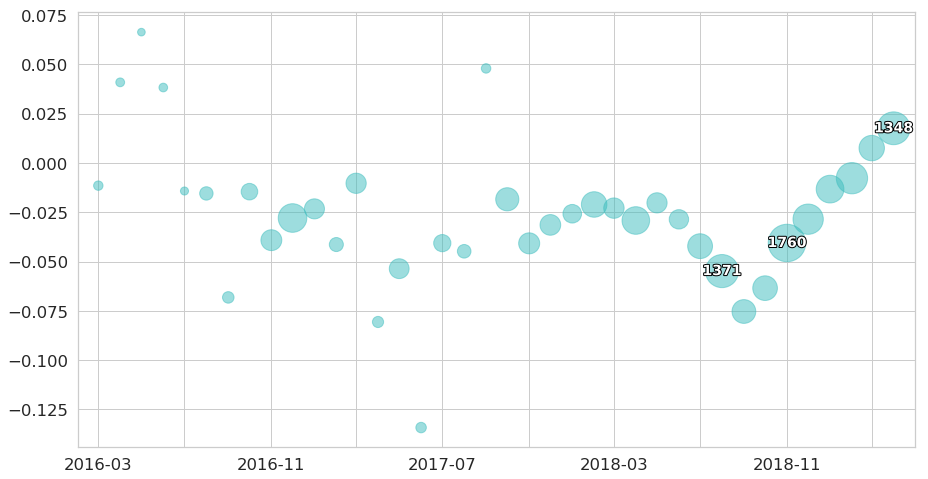
conspiraci theory
| Most positive | Most negative |
|---|---|
| cyber security | mass shooting |
| battery replacement | white supremacist |
| recommendation algorithms | sandy hook |
| tech platforms | alex jones |
| brexit referendum | youtube kids |

russian trolls
| Most positive | Most negative |
|---|---|
| ads purchased | federal news |
| facebook revealed | sow discord |
| collusion between | troll factory |
| facebook spokesperson | russian meddling |
| project lakhta | information warfare |
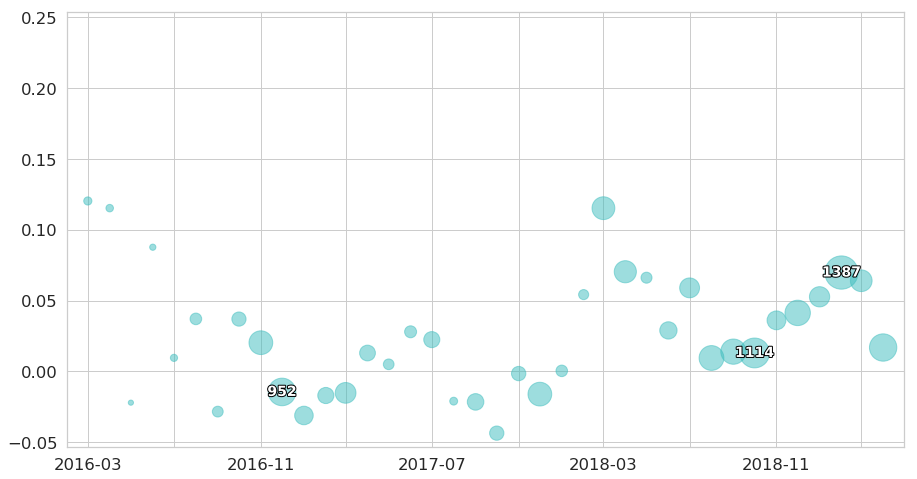
fact-checking
| Most positive | Most negative |
|---|---|
| jonathan zittrain | upcoming election |
| neural networks | watchdog organ |
| election interference | brazilian election |
| facebook ceo | fact-checking operation |
| political debate | whatsapp groups |
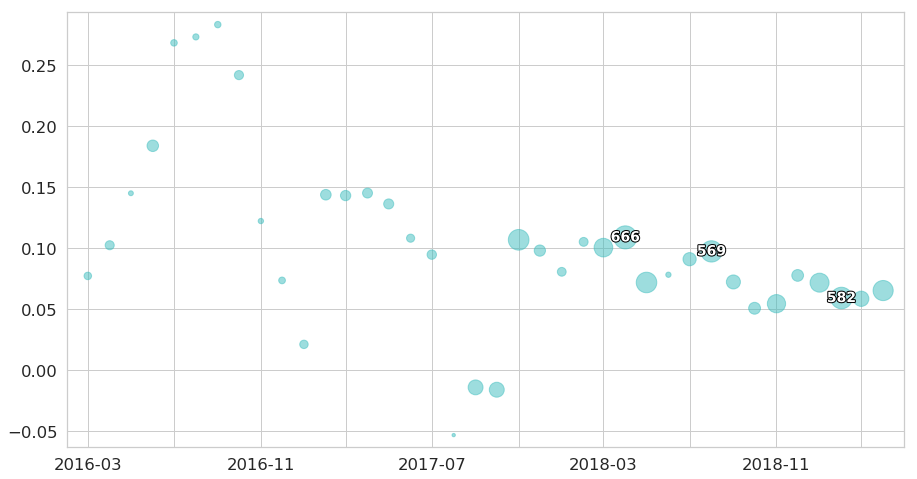
self-regulation
| Most positive | Most negative |
|---|---|
| coin offerings | remove illegal |
| privacy regulators | child sexual |
| civil rights | consent decree |
| federal privacy | false information |
| data portability | surveillance capitalism |
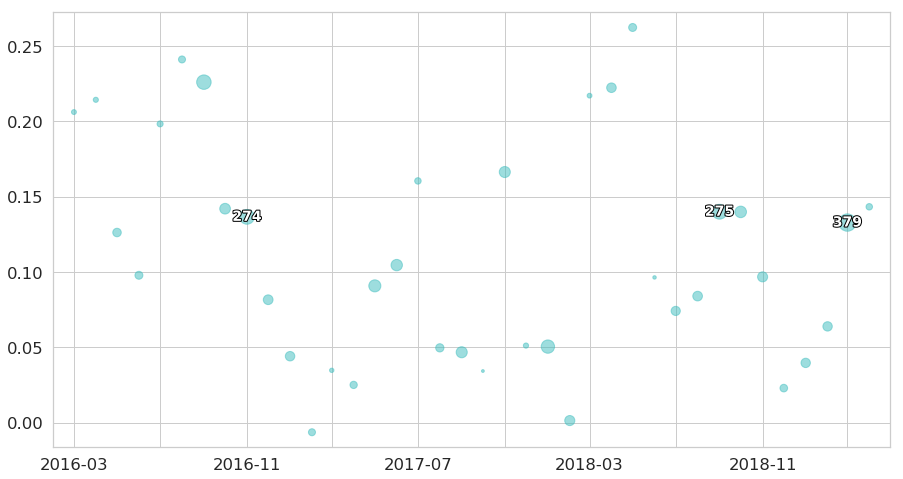
tech policy
| Most positive | Most negative |
|---|---|
| richard blumenthal | sheryl sandberg |
| ai technology | google employees |
| protection regulation | neutrality bill |
| chinese government | user privacy |
| general data | civil rights |
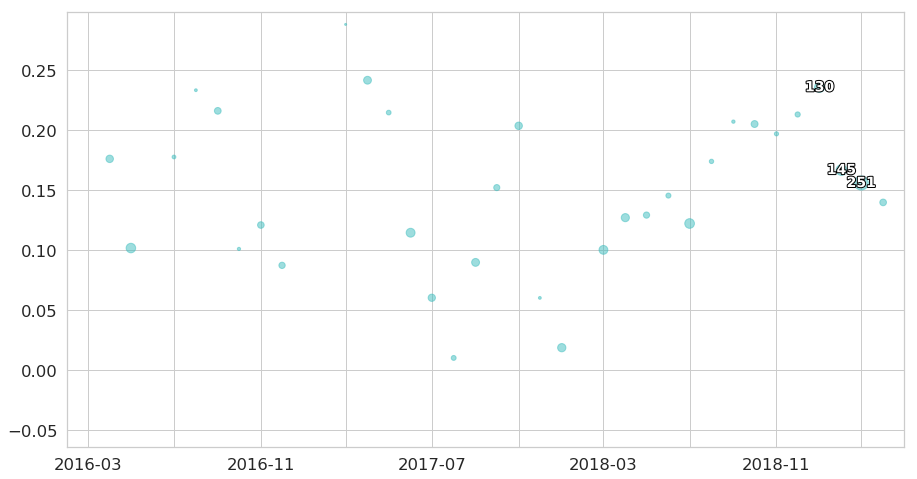
competition policy
| Most positive | Most negative |
|---|---|
| french president | antitrust laws |
| big tech | market power |
| fake news | media platforms |
| digital marketing | commission found |
| elizabeth warren | targeted ads |

fined google
| Most positive | Most negative |
|---|---|
| antitrust decisions | commission slapped |
| privacy regulators | surveillance capitalism |
| search app | roger mcnamee |
| contractual restrictions | shoshana zuboff |
| big brother | record fine |
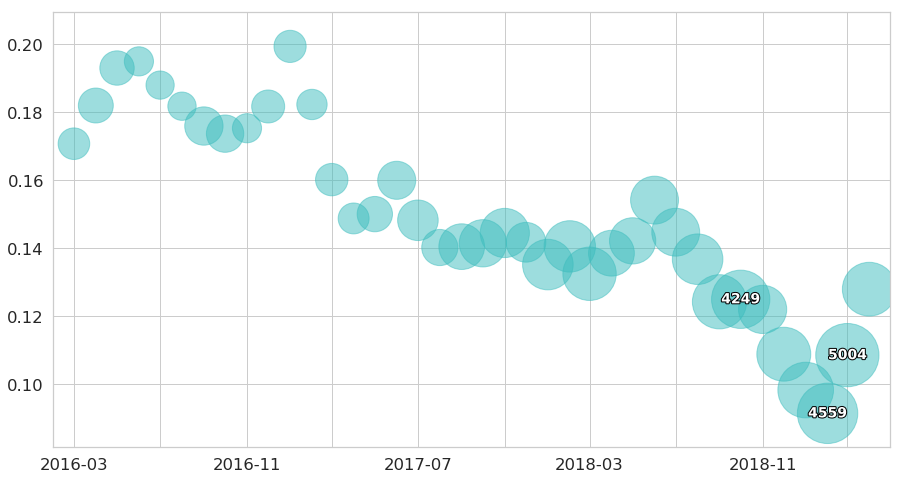
tech giants
| Most positive | Most negative |
|---|---|
| renewable energy | child sexual |
| neural networks | remove illegal |
| ai systems | alex jones |
| voice assistant | terrorist content |
| quantum computing | conspiracy theories |

digital taxation
| Most positive | Most negative |
|---|---|
| global player | european council |
| eu leaders | global solutions |
| emmanuel macron | services tax |
| digital revenues | global revenue |
| international solution | economic co-operation |
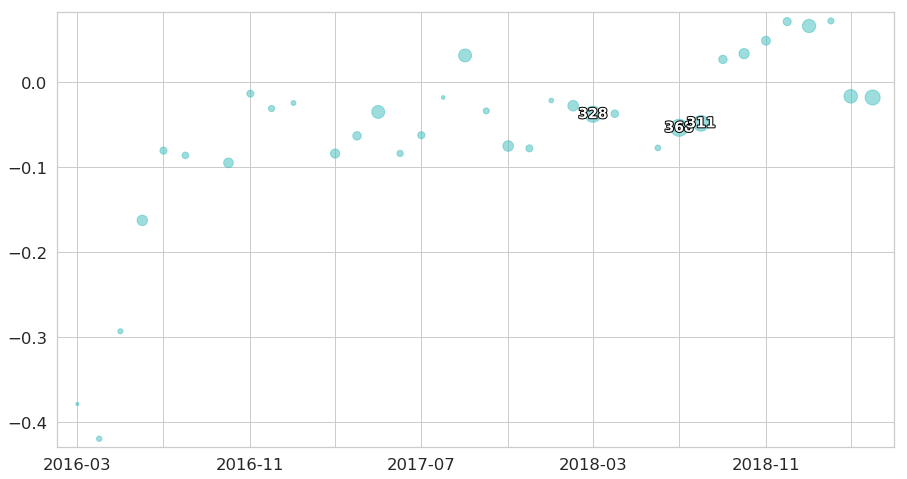
section 230
| Most positive | Most negative |
|---|---|
| political ads | child exploitation |
| cambridge analytica | users upload |
| google news | remove content |
| user data | congressional hearings |
| fake news | sex trafficking |

neutrality laws
| Most positive | Most negative |
|---|---|
| 5g networks | preempt state |
| jeff sessions | state attorneys |
| repeal net | internet regulation |
| xavier becerra | california law |
| california attorney | information service |
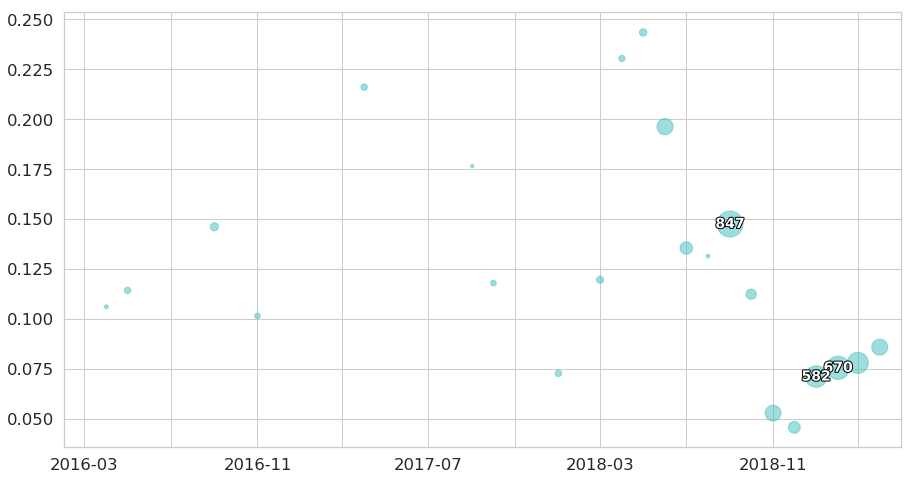
copyright directive
| Most positive | Most negative |
|---|---|
| european creator | automated surveillance |
| fair remuner | committee voted |
| creative content | recognition technology |
| # saveyourinternet | susan wojcicki |
| european publishers | key legisl |

GDPR
| Most positive | Most negative |
|---|---|
| voice assistant | british airways |
| ai research | article 11 |
| digital marketing | electronic health |
| third-party data | facebook data |
| process data | plain text |
Trends
Application to explore relevant keywords by source. The terms are trending now or were trending in the past
Common terms: compare keywords trending in all sources
100 most trending unigrams over the full analysed period: are they trending also over shorter timespans?
Topic modelling
Click to see topic modelling deliverableThis study presents an innovative methodology for analysing technology news using various text mining methods. News articles provide a rich source of information to track promising emerging technologies, relevant social challenges or policy issues. Our goal is to support the Next Generation Internet initiative by providing data science tools to map and analyse the developments of the tech word. Based on more than 200 000 articles from major media outlets, we are going to:
- Identify widely discussed topics, focusing on emerging technologies and policy issues,
- Dive deeper in selected areas and highlight key focal points of recent developments.
To meet these goals, a number of machine learning techniques are combined. The major steps can be summarised as follows:
- 17 general umbrella topics are explored
- 5 topics are selected for further analysis
- Deep dives are presented with 2D interactive maps
The topics selected for the deep dives are:
- AI and Robots
- Policy (sums up 3 relevant areas)
- Media
- Business
- Cybersecurity
The Policy topic groups together 3 areas: Social media crisis, Privacy and 5G.
Wide areas selected for deep-dive analyses

The 17 umbrella topics are identified using the topic modelling technique Latent Dirichlet Allocation. Besides the topics selected for deep dives, such areas are highlighted as Smartphones, CPU and other hardware, Digital ecosystems or Space.
Next, various maps are created based on the t-SNE algorithm. The example below presents the news stories in two-dimensions: articles that report on the same subject are clustered together. We demonstrate that this technique is highly useful to discover more narrow, domain-specific areas within the umbrella topics. Moreover, the distance between clusters is also meaningful, enabling the analysis of relationships between topics as well.
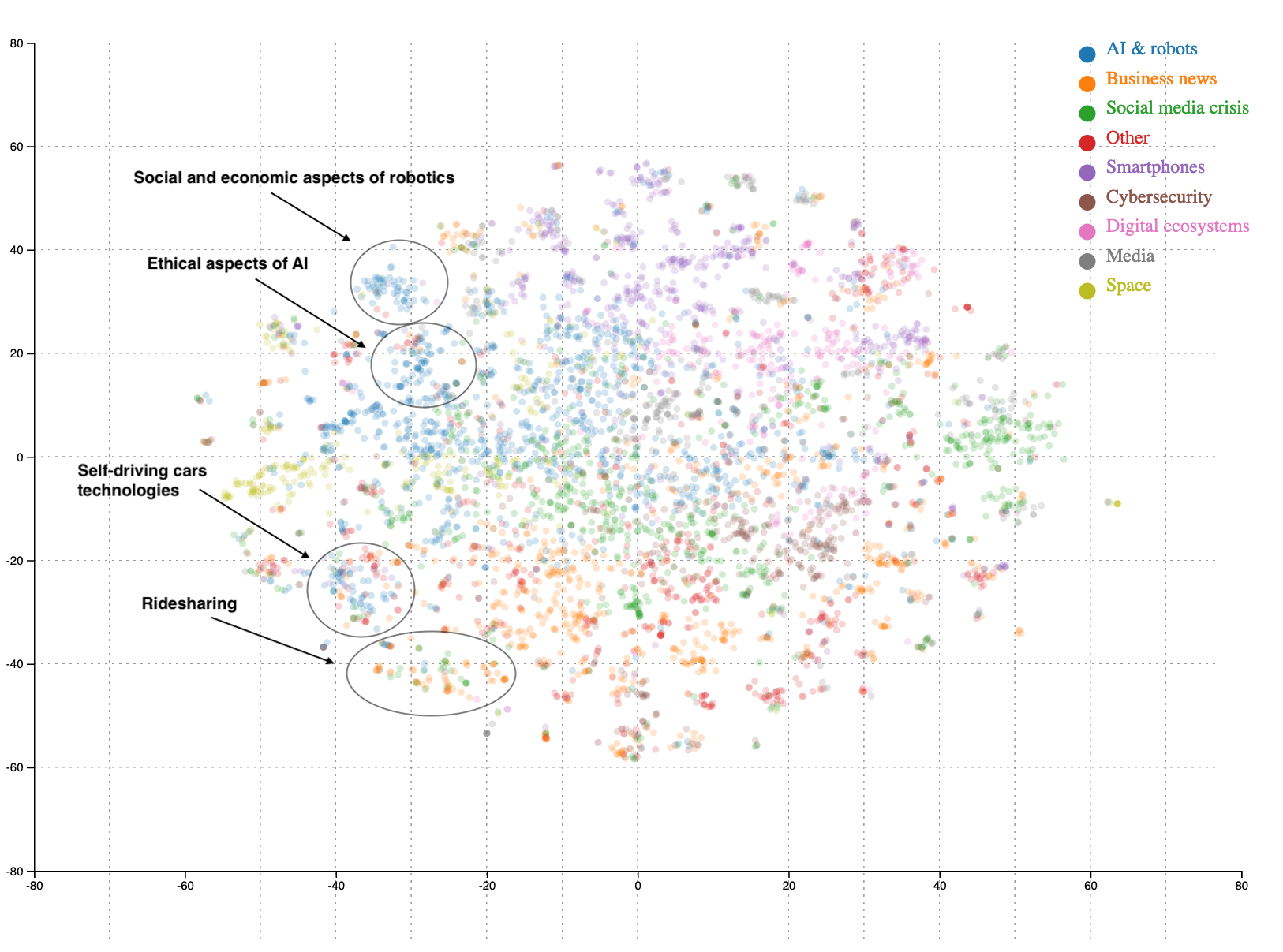
As an example, within the AI and robots topic, the map reveals groups of articles focused on such issues as:
- social and economic challenges of robotic technologies (e.g. job automation)
- ethical aspects of AI (e.g. military AI)
- AI advancements in the field of self-driving cars.
It is also visible that articles on social and ethical issues are closer to each other, while articles on AI in self-driving cars are placed near business news on ride-sharing apps. It shows that our methodology is efficient in decreasing the complexity of text data, enabling to analyse and map topics.
All maps are interactive, inviting users to explore the headline of articles. Click here for an interactive version.
Example articles
Social and economic aspects of robotics
- Robots do destroy jobs and lower wages
- Zume’s robot pizzeria could be the future of workplace automation
- RoboCop is real and could be patrolling a mall near you
Ethical aspects of AI
- Rise of the racist robots - how AI is learning all our worst impulses
- You should find out what’s going on in that neural network. Y’know they’re cheating now?
- Can you tell the difference between a real face and an AI-generated fake?
Self-driving cars technologies
- Where’s the lane? Self-driving cars confused by shabby U.S. roadways
- Jaguar’s new concept has a steering wheel you talk to and take with you
- Owl camera watches over your ride from the inside
The presented methodology provides intuitive, easily understandable results. To enhance the exploration of results, the study is presented as an interactive guide. This report has been designed with different readers in mind, offering various journeys. To analyse and understand the results, it is sufficient to read the introduction and results sections. We also prepared a guide briefly explaining various text-mining methods for anyone interested. Finally, detailed description of methods are included for proper reproducibility of the study in the methods section.
Click to see topic modelling deliverableAbout
NGI Forward has received funding from the European Union's Horizon 2020 research and innovation programme under the Grant Agreement no 825652. The content of this website does not represent the opinion of the European Union, and the European Union is not responsible for any use that might be made of such content.
Zenodo: data GitLab: codes
Toggle presentation mode
